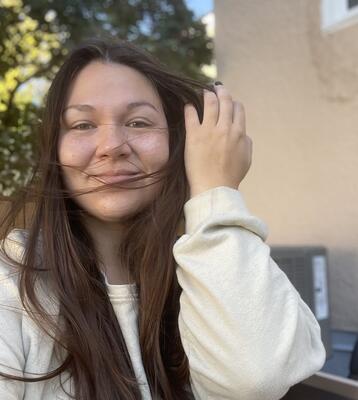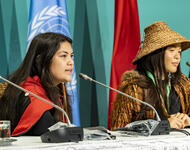Breanne Lavallée-Heckert is a Michif woman with German settler ancestry from Red River and Treaty 1 Territory. Her Michif family is from the Métis community of St. Ambroise, Manitoba, located on the southern tip of Lake Manitoba. As a research Manager with Indigneous Climate Action, she has worked on the report Indigenous-led Climate Policy which is part of the second phase of Indigenous Climate Action’s (ICA) project on Decolonizing Climate Policy.
In the interview she explains howIndigenous-led solutions to the climate crisis look on the ground, how the medicine wheel has been used as an innovative research methodology, and what gender has to do with climate change. Breanne also talks about her ambiguous experiences at COP27 in Sharm el-Sheikh, Egypt where she participated for ICA as part of the Canadian delegation.
Breanne holds a Bachelor of Arts in Human Rights from the University of Winnipeg, as well as a Bachelor of Civil Law and Juris Doctor from McGill University. Breanne is committed to decolonizing understandings of law and governance through the active embodiment of Métis sovereignty. She is a proud member of Red River Echoes, a collective of Métis people who are reclaiming culture, laws, and languages across our Homelands. Breanne enjoys writing, spending time with the land, and telling stories with friends and family.






